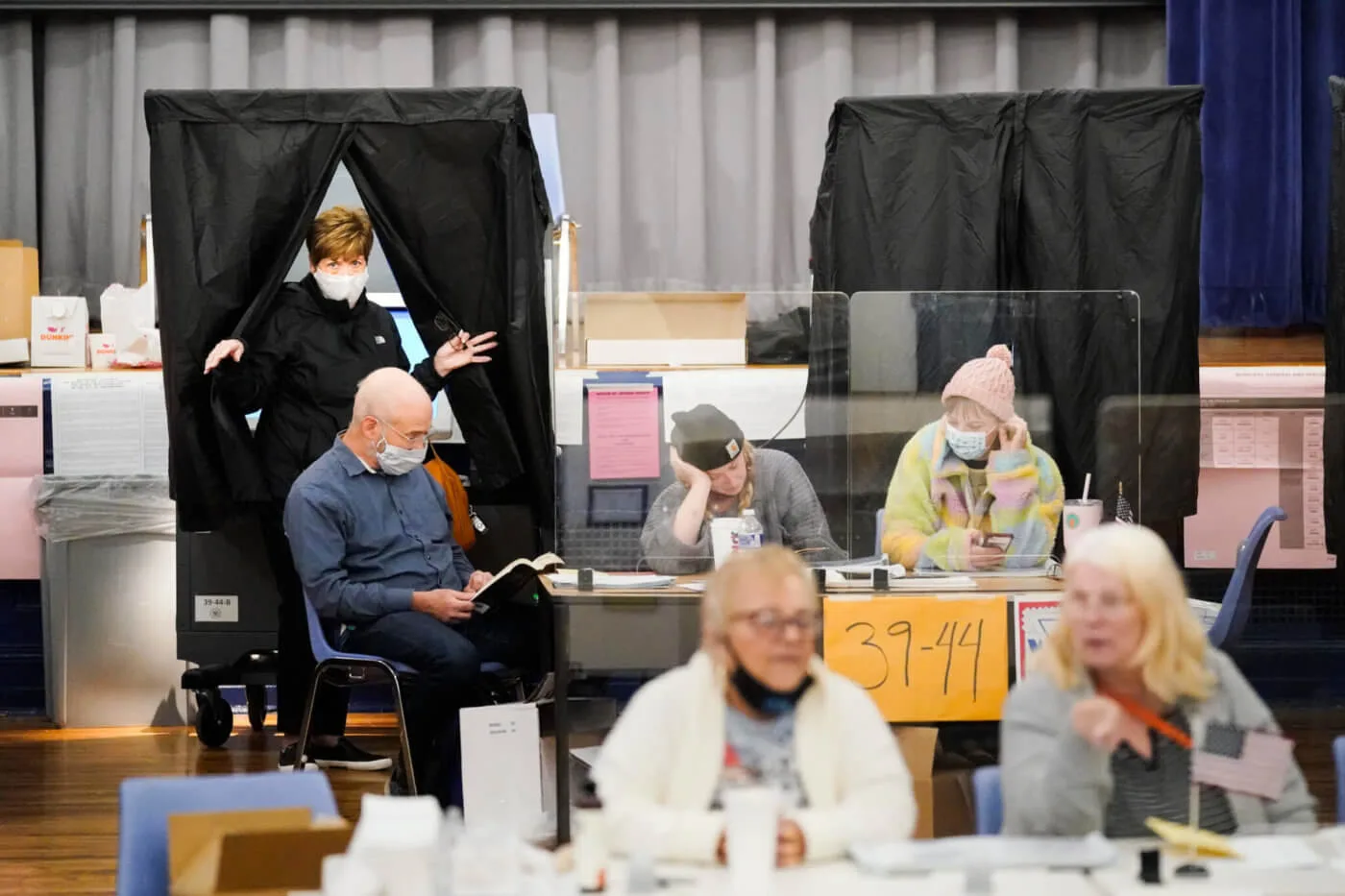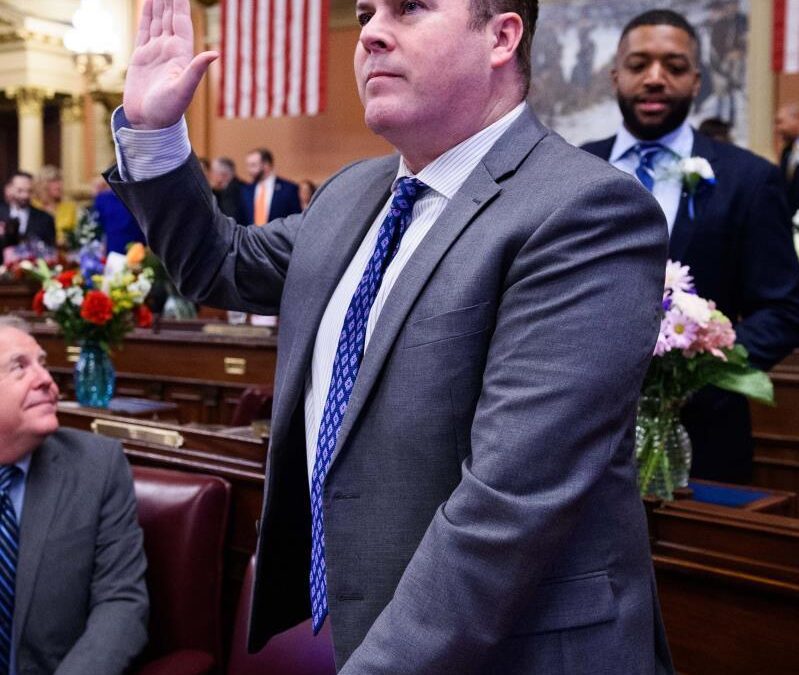
A voter wearing a protective face mask as a precaution against the coronavirus, steps from the voting booth after casting a ballot at a polling place in Philadelphia, Tuesday, Nov. 2, 2021. (AP Photo/Matt Rourke)
Poll workers in Pennsylvania are needed every year to assist voters at the polls. As an integral part of the democratic process, the state depends on these workers to run a fair and secure election at over 9,000 polling locations in the commonwealth.
Twice a year, every year, more than 40,000 people serve as poll workers in Pennsylvania to ensure a vital part of democracy—free, fair, and accessible elections—run smoothly. And you can be an integral part of the process this Election Day, Nov. 8.
The Department of State is currently recruiting poll workers to staff the more than 9,000 polling locations throughout Pennsylvania. In recent years, county and state officials have found it increasingly difficult to fill these positions. They said the shortage hit hard during the 2020 election, in the midst of the COVID pandemic and an increase in threats against election workers.
While applications are accepted on a rolling basis, you should apply no later than Nov. 2 if you’re interested in being a poll worker for this year’s election.
Working the polls is a great way to serve your community and ensure Pennsylvania elections are safe and secure.
Here’s what you need to know about getting involved:
How Do You Become a Poll Worker?
If you are interested in becoming a poll worker, just fill out the Poll Worker Interest Form on the state department’s website. Some counties have their own forms on their election websites, which you can find here.
After you submit the form, your county’s election office will review it and contact you if poll workers are needed in your county.
What Are the Responsibilities?
Poll workers verify voter registrations, set up and run polling locations, and assist voters with the in-person voting process.
There are some specialized poll worker positions that are elected. Each polling location has an election board with a judge of elections, majority inspector, and minority inspector who help manage the polling place, track the number of voters, and ensure results are received by the county election office.
Another specialized position, the machine operator, is filled by appointment. They are in charge of the voting machines used on election day at the polls.
All poll workers are paid for the time they spend working on election day. They are paid between $75 and $200 a day. Some counties even pay poll workers for attending training.
Generally, poll workers must work the entire day on Election Day, starting before the polls open at 7:00 a.m. until after the polls close at 8:00 p.m.
Is There Poll Worker Training?
To be a poll worker, you must attend a mandatory training session in-person or online before Election Day. Each county runs its own training, as voting systems vary.
The state department also offers various training modules to supplement the training provided by each county. These modules include videos and guides on checking in voters, checking voter identification, accepting provisional ballots, and assisting voters with disabilities.
Who’s Eligible to Be a Poll Worker?
To be a poll worker, you must be registered to vote and you can only work in the county where you live.
High school students who are 17 years old may volunteer to work, but must meet additional requirements set forth by their county election office.
You cannot serve as a poll worker if you are currently a government employee or official, or if your name is on the ballot. Exceptions exist for district judges, notaries public, and Pennsylvania National Guard members.
Politics

Philadelphia DA cancels arrest warrant for state Rep. Kevin Boyle on eve of Pa. primary
Philadelphia District Attorney Larry Krasner said a detective had sought the warrant against Boyle, a Democrat whose district includes a section of...

Influencers and creators find new ways to engage young Philadelphia voters
Rec Philly, a space for creators and influencers, teamed up with Show Up Strong to get hundreds of young Philadelphia residents engaged in the...

New Biden rule protects privacy of women seeking abortions
Under the new rules, state officials and law enforcement cannot obtain medical records related to lawful reproductive health care with the goal of...
Local News

Conjoined twins from Berks County die at age 62
Conjoined twins Lori and George Schappell, who pursued separate careers, interests and relationships during lives that defied medical expectations,...

Railroad agrees to $600 million settlement for fiery Ohio derailment, residents fear it’s not enough
Norfolk Southern has agreed to pay $600 million in a class-action lawsuit settlement for a fiery train derailment in February 2023 in eastern Ohio,...






